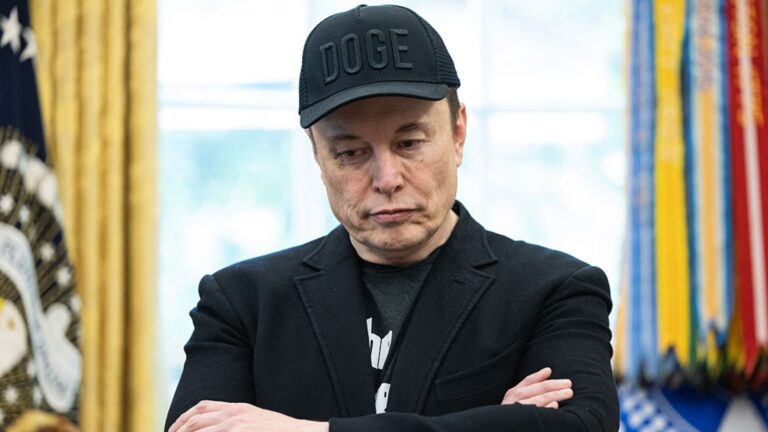Elon Musk, during a news conference with President Donald Trump, inside the Oval Office at the White House in Washington on May 30, 2025.
Tom Brenner | The Washington Post | Getty Images
The Trump administration plans as soon as Tuesday to formally axe a program launched by billionaire former Trump adviser Elon Musk requiring federal employees to summarize their five workplace achievements from the prior week, two people familiar with the matter said.
The Office of Personnel Management, the federal human resources agency that implemented Musk’s push to slash the federal workforce, plans to announce the end of the “five things” email to HR representatives across the federal government later on Tuesday, the two people said, declining to be named because the matter was not public.
While many federal agencies had already phased out compliance with the weekly email, the move, not previously reported, signals the Trump administration is turning the page on one of Musk’s most unpopular initiatives following a dramatic row between the two men in early June.
The White House and OPM did not immediately respond to requests for comment.
Musk, who spent over a quarter of a billion dollars to help Trump win November’s presidential election, led the Department of Government Efficiency’s efforts to slash the budget and cut the federal workforce until his departure in May to refocus on his tech empire.
Musk initially received a warm White House sendoff from Trump, but then incurred the president’s wrath by describing Trump’s tax cut and spending bill as an abomination.
Trump pulled the nomination of Musk ally and tech entrepreneur Jared Isaacman to lead NASA and later threatened to cancel billions of dollars worth of federal contracts with Musk’s companies after the blowup between the two men.
The “five things” email, launched by Musk in February to boost accountability, sparked tensions with department chiefs who were blindsided by the weekend email mandating the move. It also fueled confusion among government workers who received mixed messages about whether and how to comply.
Reuters reported in March that the White House installed two Trump loyalists at OPM to ensure better policy coordination between the White House and the agency.
Scott Kupor, a venture capitalist who took the helm at OPM in July, foreshadowed the end of the initiative last month, describing processing of the weekly response emails as “very manual” and “not efficient.”
It is “something that we should look at and see, like, are we getting the value out of it that at least the people who put it in place thought they were,” he said.

